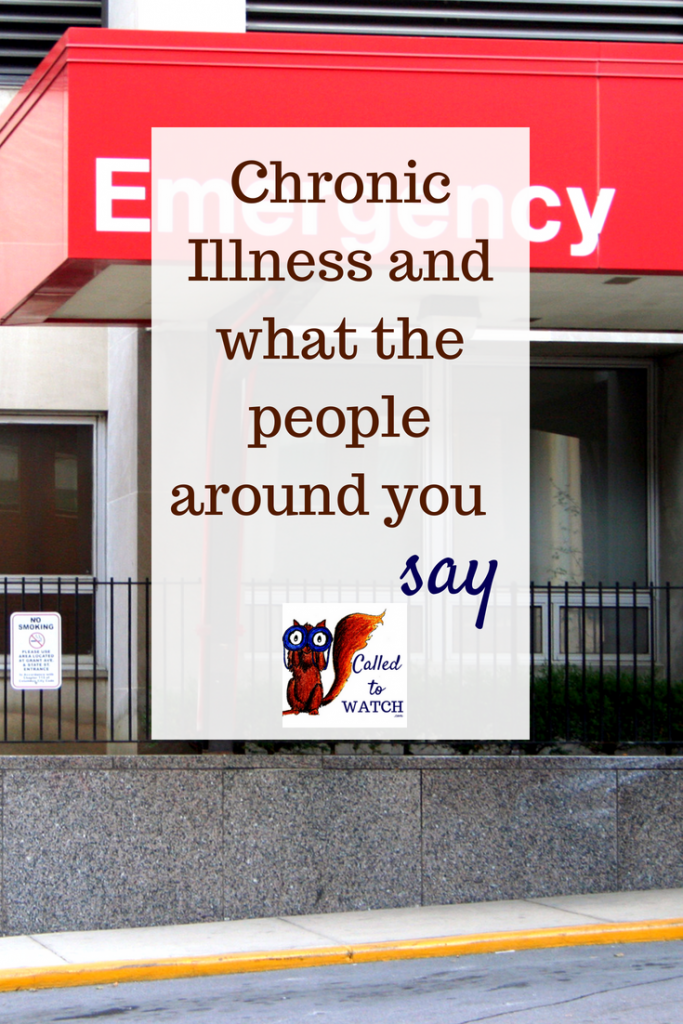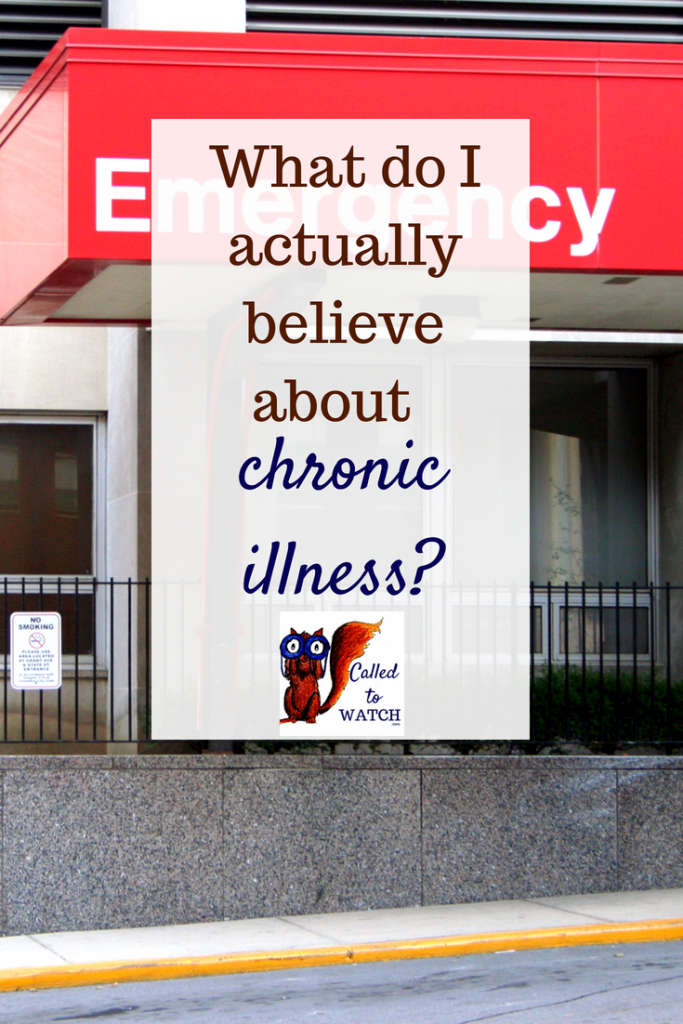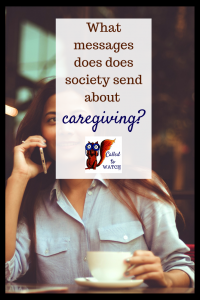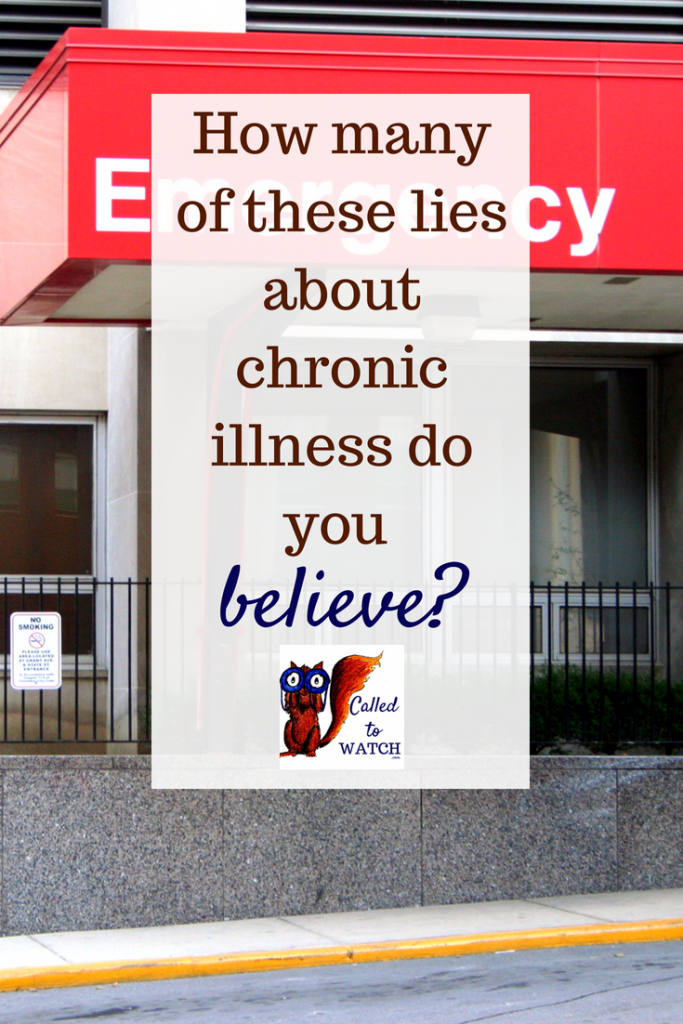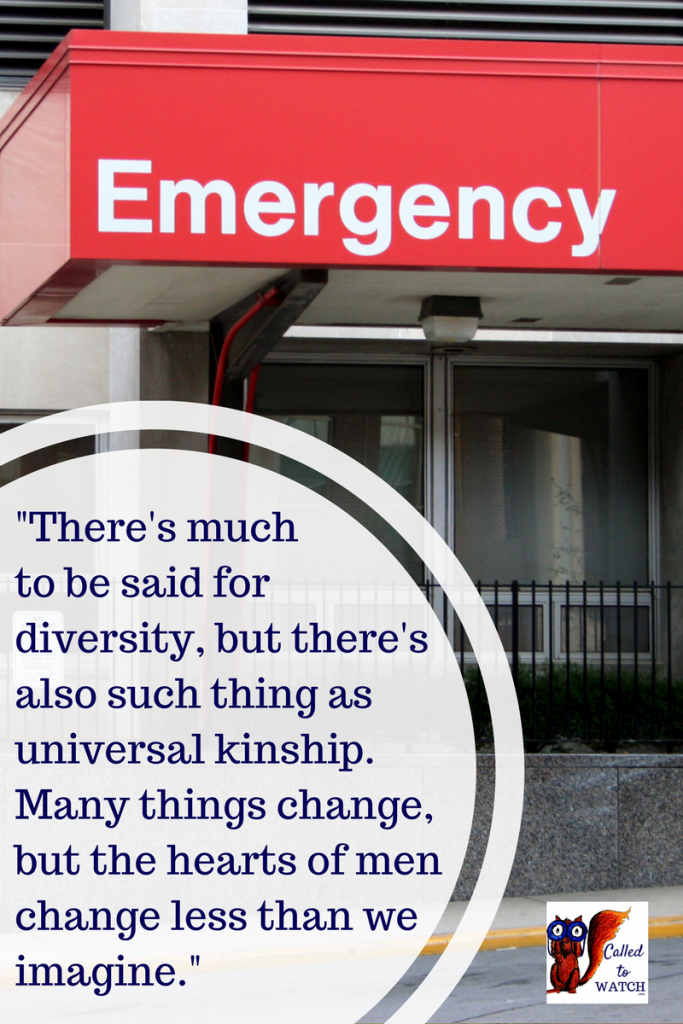We learnt that the Bible has some guidelines which can help us formulate an ‘answer’ to sickness.
But we can’t stop there.
I think it is important we look at the flip side.
What does society say about Chronic Illness?
A definition of ‘society’
Now, by ‘society’, I mean secular, not-specifically-Bible-based, thought.
I mean the individual-focused, 21st century, Western culture in which I live.
I mean the ‘natural’ whispers of my heart when it is not focused on Jesus.
can you really define ‘society’ like this?
Wait! If at this point you have an objection, I am with you.
If your objection is: ‘We can unearth what the Bible says about sickness by reading it, but how can we discover what society says? It’s too subjective. There’s no manual.’ then I’m with you also.
There is no book for society. It is made up of so many ideologies and sympathies. ‘Society’ is different in different cultures and countries and times.
How on earth can we hope to pin down in one post the response of ‘society in general’ to chronic illness?
To even consider doing so seems pretentious on the largest scale.
why I think we CAN define society
I don’t think we can possibly represent “society” in all its nuances in one blog post. We certainly can’t hope to transverse all time and space to collect the thoughts on sickness from every society in ever nation and every era.
But we can try.
There are limitations. This post will deal with the subject from a Western frame of reference, because it is the only point of view I’ve got. It will also address the issue from a 21st century, generation-specific standpoint, because I was only born once, and that is now.
Yet I propose that because sickness is universal and transcendent of time and culture and geography, the answer to it is as well.
I suspect that as much as we want to claim that responses differ over time and over culture, the truth is, they do not differ as much as we would like to believe.
To be human is to be kin
We are all human. We all have loves and fears, and often those loves and fears are the same. Our temptations and sins, our virtues and our heroisms coincide also. There is much to be said for diversity, but there’s also much to be said for universal kinship.
I believe there is a reason certain books or stories are repeated and enjoyed throughout the globe whatever the race or age of the participant. Many things change, but I suspect the hearts of men change less than we imagine.
but wait! Society has been influenced by different religions
But, you might argue, there is another problem.
I just told you I am writing from a Western point of view. It is all very well to admit that, but we know the Western world was to a large extent influenced by the historical spread of Christianity.
How can I untangle secular from Christian? How can I know that what I say is secular is actually devoid of religion? Or the other way round – what if what I say is Christian is actually tainted by secularism?
Brilliant questions. Let’s begin.
we have a benchmark for christianity, so let’s use it
Firstly, I acknowledge that sadly the mantle of what is ‘Christian’ can be and has been spread very wide (and very thin).
As a result, the perception of ‘Christian’ has become culture and era dependent. Thus, I don’t actually want to compare a ‘Christian’ and a ‘secular’ response. I want to compare a ‘Biblical’ VS. a ‘non-Biblical’ response.
The word ‘Christian’ may be subjective, but the text ‘Bible’ (as accepted by Christians throughout the ages) is not. Thus we can objectively divide the two. A response that is not in the Bible I will thus label as ‘secular’ and vice versa.
Still, be critical.
Test what I say.
Do the desires and thoughts and answers I write resonate with the murmurs of your heart? Are they accurate reflections of yourself, your culture, your beliefs? If so, why? If not, why not?

What society says about chronic illness (some thoughts)
chronic illness is natural, so don’t worry.
- There is no rhyme or reason. Some people are just unlucky.
- Sickness is natural. It’s part of the evolutionary chain, it is part of survival of the fittest.
- Sickness is scientific.
But chronic illness is really unfair
- …But sickness is wrong. People should not be sick. We must fight sickness and disease with all we have.
- Sick people deserve special attention and consideration.
Good people should not fall sick (but who’s good?)
- Good people should have good things happen to them. Only bad people should be sick.
- But everyone is good, deep down. Except Hitler, of course.
Quality of life is everything (but fight for quantity too)
- Quality of life trumps quantity. VS
- Quantity of life trumps quality.
Fight death (but accept it peacefully!)
- We must fight against death, it’s the one great enemy. VS
- We have to accept death. We will all die.
What society says about Watching someone with chronic illness (some thoughts)
You have the right to lash out (but people won’t like you if you do!)
- It’s the mark of a strong character to lash out at other people’s hypocritical and patronizing attempts to speak into your situation. You shouldn’t just lie down and take it. That would be weak.
- You are suffering as well as your Loved One, so it is alright if you accidentally hurt people. At the very least it is permissible, understandable and even acceptable because you are in pain. You cannot help it.
- The people you hurt, however, have every right to complain about you. They will say that just because you are suffering it doesn’t give you a free license to hurt people.
You have the right to be acknowledged
- Because you are going through this hard time, you are strong and brave and beautiful and special. You deserve to be acknowledged, supported and admired.
- This is the time when you find out who really cares about you, so if someone doesn’t respond in the way you would like or need them to, feel free to name, shame, complain and shun them.
You deserve happiness (so indulge, but not in the ‘wrong’ ways)
- You do not deserve this. You deserve happiness.
- No response to pain is correct or right, so you can say whatever you want and do whatever you want.
- Life is hard for you, so you are allowed to indulge in whatever makes you feel better. Don’t be ashamed, if any time you deserve it, it is now. VS
- At the same time, if you indulge in what is ‘wrong’ or socially unacceptable you will be judged
Release your anger (but you don’t have to)
- Anger and bitterness are unhelpful, ‘let go of your pain and bitterness’ and find your ‘new self’. VS
- You have a right to be angry and bitter, because after all, you do not deserve to suffer and carry a cross each day, you deserve the fulfilment of your dreams and happiness.
Next time we look at what society says about prayer, heaven and sacrificial love
This is only Part 1, and for the most part it’s merely observations.
Now that might make it interesting to some of us, and frustrating to the rest of us, but I think it’s an important place to start.
Until next week, look deep into yourself, into your culture, into your values, into what your faith tells you.
// What presuppositions of life have you collected? What do you take for granted?
Are they accurate? Are they enough?
PS: Enjoyed the post above? Get the next one delivered straight to you! Sign up for email notifications
I’m also on Facebook, Pinterest & Twitter! Meet me there for more interesting reads, resources and community.


